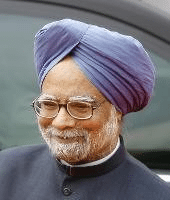In an interview with Delphine Strauss in Ankara after Barack Obama’s visit, Abdullah Gul, Turkey’s president spoke of his reaction to the US president’s initiatives and warned that European criticisms could pose a threat to western security interests. The following is a transcript of the interview
What do you expect the impact of President Obama’s visit to be inside Turkey?
Gul: First of all we were very happy because this is the first overseas visit – the first bilateral visit of the new US president – to our country and the fact that he has chosen Turkey and has chosen to address the Islamic world from the Turkish parliament made us very happy.
We have seen that they realise the place of Turkey. I told him, take out a piece of paper and write down the priorities for US foreign policy. I’d also take a paper and write down the issues Turkey has been dealing with. You will not see such similarities with any other country in the issues they are dealing with.
Of course the US is a superpower, so they have duties, but in this region we are one of the important countries. In this region, from Afghanistan to the Balkans, from energy security to the Middle East, from terrorism to nuclear disarmament, these are issues not only of interest to Turkey but to all of the world.
Therefore the visit of the US president to Turkey was not only aiming at strengthening bilateral relations between the two countries but also of great relevance to regional and international issues.
One of the most important messages Obama gave yesterday was his support for the talks going on between Armenia and Turkey. He also met yesterday evening with both foreign ministers. What is left to resolve before we see public steps on this issue?
Gul: As I’m sure you know there have been efforts at normalisation from time to time between the two countries, but as you see these efforts accelerated after my visit to Armenia. This visit was a historical visit because this was the first time a Turkish president was in Yerevan and from that time on from telephone calls and other communications we have come to a certain mutual understanding on normalisation of relations. Through bilateral talks, I can say that we have reached a good understanding towards normalisation. In fact, after last summer there has been a new situation in the Caucasus. Everybody saw that these problems which we thought were frozen could immediately become big problems.
Therefore we have started an initiative named Stability and Cooperation in the Caucasus. From this perspective the major problem in the Caucasus is the Karabagh question between Armenia and Azerbaijan, We wish that this problem is resolved so that a new climate emerges in the Caucasus, because in fact although this is a relatively small area it can become a wall between East and West or it can become a gateway.
We are in a great effort to resolve these problems in the Caucasus and I believe that the year 2009 is a year of opportunity in that respect. And therefore I would like to invite everybody, beginning with the Minsk group, to multiply their efforts to come up with a solution.
We heard from president Obama that a breakthrough in these talks could be very close. Are you saying we should not expect a public step forward before there has been progress in the Minsk group?
Gul: I can say that there is a good level of understanding between the parties and goodwill on both sides
There is a clear statement that partnership with Turkey is crucial to US policies in the region. What role exactly does the US want Turkey to play, for example, in Afghanistan?
Gul: Frankly in this visit there was no concrete demand. Based on our understanding of our responsibility in that matter we have increased our efforts, our contributions, not only in terms of our military presence but also in our civilian activities.
As you know we had the command of ISAF twice before and we will now take over the command of the forces in Afghanistan. There are other sides of our military activities but what’s more important is the civilian activities that we’re undertaking and I’ve shared this extensively in our Nato meeting. I’ve visited Kabul. I stayed there two days, I visited everywhere in that city and I saw that we cannot win people’s hearts and minds no matter how much we spend on the military side. I said before that the streets of Kabul are flooded with mud. People are walking there as if they are just floating on mud. We’ve now allocated $100m for asphalting streets in Kabul. We’ve almost finished the tender process and started actually preparing the roads. In a country where the girls are not allowed to go out in the street, we’ve open tens of schools for girls. In total we’ve opened hundreds of schools.
You might have followed that five days ago we had the president of Afghanistan and Pakistan and also the general chiefs of joint staff [for meetings in Ankara]… This was very important… Our sole objective in this was to establish a working relationship between these institutions and it actually materialised.
I have obtained in full the opinion of both of these presidents so that I can convey these views to the Nato leaders and to president Obama. I was very happy that I shared our assessments and the realities and the facts in a very open manner and I think it was of great service.
Our foreign minister has visited all three regions in Afghanistan, many cities, with his wife. We are not leaders to go to Afghanistan and to visit our troops there in an isolated manner and come back. So the capacity of contribution in Turkey in those matters is very large. Why are we doing all of this? We are doing all of this for peace and stability and to expand our common values.
I understand that as Turkey takes over command in Afghanistan that will involve increasing the numbers of troops. Is that correct?
Gul: Yes, as I’ve said we’re increasing our military and civilian presence. The way in which we do these things, the military authorities are working on that.
Do you have a sense of the numbers involved?
Gul: This will certainly be an important contribution but there will not be any combat forces.
Turkey has been very assertive in its foreign policy recently, for example making its objections to the appointment of Mr Rasmussen very clear. Is there a risk of all this antagonising its European partners?
Gul: That shouldn’t be the case. Especially in a defence organisation like Nato, it is necessary that you discuss these matters in decision making mechanisms and come to a decision. Since 1952 Turkey has been the most active member of nato and a major contributor. During the cold war period Turkey spent its own resources for the defence of Europe. This should be appreciated.
We have discussed [Rasmussen’s candidacy] with all of our partners over the phone and we had some questions and we shared our concerns and so our concerns are met.
Now we must look to the future and we have to work all together in order to make the new secretary general successful.
In fact concerning the points you have raised I am aware of some opinions from various circles and this is worrying.
[Breaking in on translator in English] It’s very dangerous and making us disturbed.
[Switching back to Turkish] You know for example even in the EU, some countries whose contributions are smaller may be blocking or vetoing some strategic issues which can be extremely important.
In this present case, if a country has a significant and vital contribution to the organisation, if they have concerns, rational concerns on a concrete subject it is very natural that this should be listened to and responded to. So these points should not be underestimated.
We neither engaged in blackmail nor did we have an irrational request. We acted in a rational logical and in a modern way within the compromise which is a European culture. And indeed in the end we came to an understanding. Therefore I am surprised to see comments of that nature coming from certain countries. I don’t find it terribly in line with the European spirit.
There’s been a lot of speculation about exactly what guarantees given allowed Turkey to overcome its objections [to Rasmussen’s appointment]. Can you able to tell me how president Obama was able to convince you?
Gul: I prefer not to communicate through newspaper headlines. We should look to the future. We should make Nato and the new Secretary General successful.
One issue in particular is causing friction in Nato now – the difficulties over EU-Nato cooperation where of course Cyprus plays a part. Is this an issue where Turkey would be able to make some kind of gesture that would make the issue less sensitive?
Gul: In fact if there’s going to be a gesture I think there should be a gesture to us, not from us… We make more contribution, a more strategic contribution and more sacrifice. Not others.
This is very important. I was foreign minister for 5/6 years and at all of our meetings in Nato in the EU I have told my colleagues time and again that we have to solve this problem on time, as soon as possible because in the future it is likely to poison some more important and strategic issues.
So the world is a very fragile place and there is a big potential for problems, there are big threats and there may be times when we need even stronger cooperation. This problem might hijack the huge issues and prevent us having a huge solidarity so therefore I used to warn all my colleagues, let’s solve this problem in a fair manner. I was warning them many times…
You are right, it’s a problem in the EU. It’s a problem that the EU and Nato have not been having very healthy and full cooperation. But it’s not because of us. It’s because of the others.
Are you worried that time is running out for talks to solve the Cyprus issue?
Gul: We are very serious for a solution. We really wish this problem to dissolve – I’m not making propaganda, we proved this in 2004. We took the risk, we compromised, we challenged inside and we made sacrifices and the plan was put to a referendum on both sides. So Turks and Turkey said yes, the other side rejected.
What else we can do? Anyway, that’s old, we start again and we have a full intention to reach a comprehensive solution over there. That’s why we have full support behind president Talat. We wish this problem to be over very soon. Once the problem is over we believe that Turkey, Greece and the whole of Cyprus can be another pillar in the EU with full cooperation. This is our real desire, this is our vision. Once, when it was not a joke, in 2004 we proved ourselves, so we have the credibility.
Is it helpful for the US to intervene in support for Turkey’s EU bid – or the reverse?
Gul: We do not ask them to do it. They’ve done these public declarations because of their strategic approach, and nobody should be disturbed by this, because in the end the decision regarding Turkey is the decision of members of the European Union and nobody will be making this decision under pressure. All member states made their own decision – by unanimity and of their own free will – to start membership negotiations with Turkey… This is not likely to happen under pressure. They have elaborated and studied the matter to see whether Turkey is an asset or not and they came to the conclusion that it’s probably an asset
[The decline in domestic support for EU process] is not because its taking a long time. But some public statements coming from some member states are upsetting public opinion and undermining the credibility of those states. Because they are then in conflict with their own signatures, their own commitments. In the meantime the negotiation process is going on and Turkey is amending its laws and regulations and constitution to harmonise with the Community acquis… In any case we are going to continue with our reform process because these are our reforms and we want to do them ourselves.
 Just look at successes in Indonesia and Turkey.
Just look at successes in Indonesia and Turkey.





